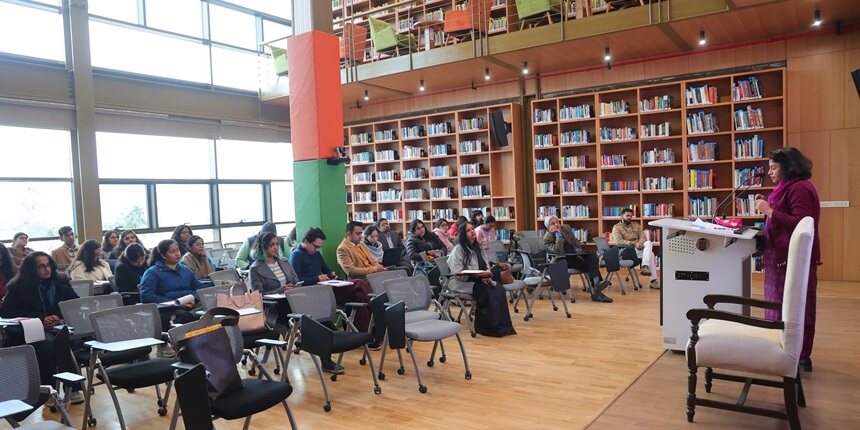Jindal Global Law School to admit students through LNAT-UK from 2025 session
Vagisha Kaushik | August 14, 2024 | 06:26 PM IST | 3 mins read
JGLS admissions 2025 will be held in two phases, phase 1 from September-January and phase 2 from January-June 2025.

NEW DELHI: Jindal Global Law School (JGLS) has announced a new examination – Law National Aptitude Test - United Kingdom (LNAT-UK) for admission to its law programmes starting from the academic session 2025-26. It will be mandatory for students to take LNAT-UK 2025 for five-year integrated law programmes including BCom-LLB , BBA-LLB, BA-LLB and the test will be given preference in other law degrees.
From now onwards, JGLS admissions will be conducted in two phases. In the first phase of 2024 admissions starting from September 1, students will register and take the test between September 1 and December 31, 2024. These candidates will be offered seats in January 2025. The second phase of registration and test taking will be from January 1, 2025 to May 31, 2025 and students will be admitted in June for the remaining seats.
The law test consists of a multiple-choice section and an essay component and has been designed to assess candidates' critical thinking, comprehension, and reasoning abilities.
“This strategic shift aligns JGLS with global best practices in legal education and ensures that candidates possess the analytical capabilities necessary for success in the rigorous study of law. The LNAT-UK, an internationally recognized test, is widely used by leading law schools in the United Kingdom and is renowned for its ability to assess candidates’ aptitude for legal reasoning rather than their knowledge of specific legal subjects,” said the law school in an official statement.
JGLS admissions through LNAT-UK: More centres, scholarships
Professor C Raj Kumar, founding vice-chancellor of OP Jindal Global University (JGU) and founding dean of the law school said it's a historic development for the school to become a member of the LNAT consortium as the only law school from India admitting students based on LNAT-UK test.
Highlighting five reasons for aspirants to take the LNAT-UK 2025 test, he said that LNAT-UK is accepted by leading law schools in the UK including Oxford and Cambridge as well as law schools in Singapore and Spain. “This test is apt for a global law school like JGLS where students are benchmarked internationally,” he said. Secondly, the test analyses verbal reasoning skills and not legal or general knowledge. It's a test to understand and interpret information and your ability to analyze information and draw conclusions.
Thirdly, it is an online computer-based test administered at more than 500 centres globally. Students can choose to appear for the test from 500 plus centres available in almost all the major cities of India and around the world which gives them convenience to schedule their exam on any date within the stipulated timeline and at any city of their choice.
Also read NIRF Law Ranking 2024: NLSIU Bengaluru top law college in the country
Fourthly, all the students who take LNAT-UK may apply for scholarships to study at JGLS. Scholarships are awarded in the range of 10%, 25%, 50% and 75% of tuition fee as per merit and annual parental income criteria. And finally, there are two admission cycles and an option to take the test twice.
“By virtue of two distinct admission cycles, applicants of JGLS have an option to take the test twice and be considered for admission and scholarship based on higher of the two scores. The early admission process in January 2025 enables you to secure a seat well in advance but it also provides you an opportunity to take the test again if your score doesn't qualify for admission in the first test,” the professor further explained.
According to professor Anand Prakash Mishra, vice dean of JGLS, and director of law admissions of the university, the test will help JGU admit international students without them having to travel to India for taking the test.
Follow us for the latest education news on colleges and universities, admission, courses, exams, research, education policies, study abroad and more..
To get in touch, write to us at news@careers360.com.
Next Story
]Meet the 26 year-old who moved Supreme Court against ‘exorbitant’ bar council fees
Gaurav Kumar, 26, had to borrow the fees for Delhi Bar Council. In February 2023, he moved the Supreme Court against the ‘exorbitant’ state bar council fees arguing they are a barrier for fresh graduates of law schools.
Sheena Sachdeva